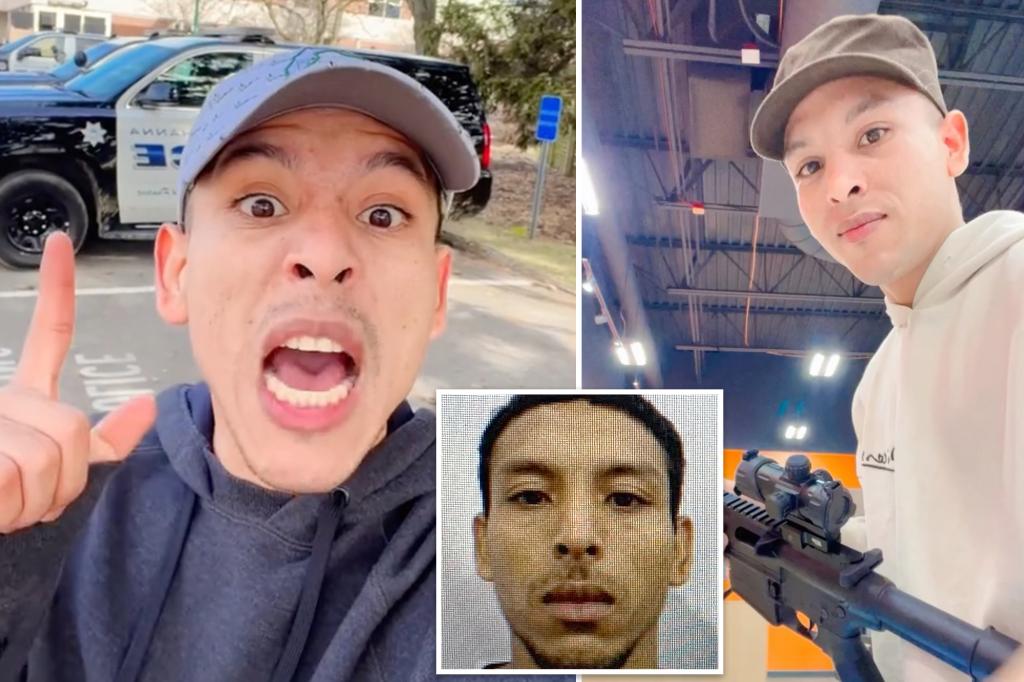Leonel Moreno, a Venezuelan social media influencer who encouraged border crossers to enter abandoned houses, now finds himself in jail in Ohio and missing the freedom he once had in the United States. He claims to be the victim of unjust persecution while being held at Geauga County Jail. Despite his claims of being defamed by the media, he maintains that he is a good person and fears for his safety while in jail.
Moreno was captured by Immigration and Customs Enforcement officers in March after failing to appear for required check-ins as part of a parole scheme approved by the Biden administration. He may also face federal firearm charges due to videos on his social media accounts showing him with guns. While Moreno insists that he was detained due to his social media activities, he plans to use his First Amendment rights to fight any charges brought against him.
In his social media videos, Moreno encouraged migrants to come to the US to beg on the streets rather than work, claiming he had enough money to support himself and his family for 18 months without working. He also called for support for a 15-year-old migrant accused of firing shots in Times Square. Despite his TikTok account being shut down, he continues to earn money through Facebook and Instagram.
Claiming that the person in his videos is a fictional character, Moreno insists that his on-screen persona is separate from his real identity. He describes the character in his videos as having a sarcastic, dark humor, while distancing himself from the messages and behavior portrayed. He believes there is a distinction between his social media persona, known as “Leito Oficial,” and his true self as Leonel Moreno.
Moreno expressed his disappointment at being jailed in the US after fleeing persecution in Venezuela. His incarceration has led him to miss his freedom and fear for his life while in jail. Despite his claims of being wrongly detained, he faces uncertain legal consequences due to his social media presence and potential criminal charges. Moreno continues to defend his social media content as his job and vows to continue earning money through other platforms.
Despite facing legal troubles and backlash for his controversial social media content, Moreno remains defiant in his stance. He believes that the US, which he once praised as a place of freedom, has become oppressive and limits his ability to express himself freely. While in jail, he has maintained contact with his wife and seeks to defend himself using his First Amendment rights. Moreno’s situation underscores the complexities of online personas and their real-life consequences when they intersect with the law.















